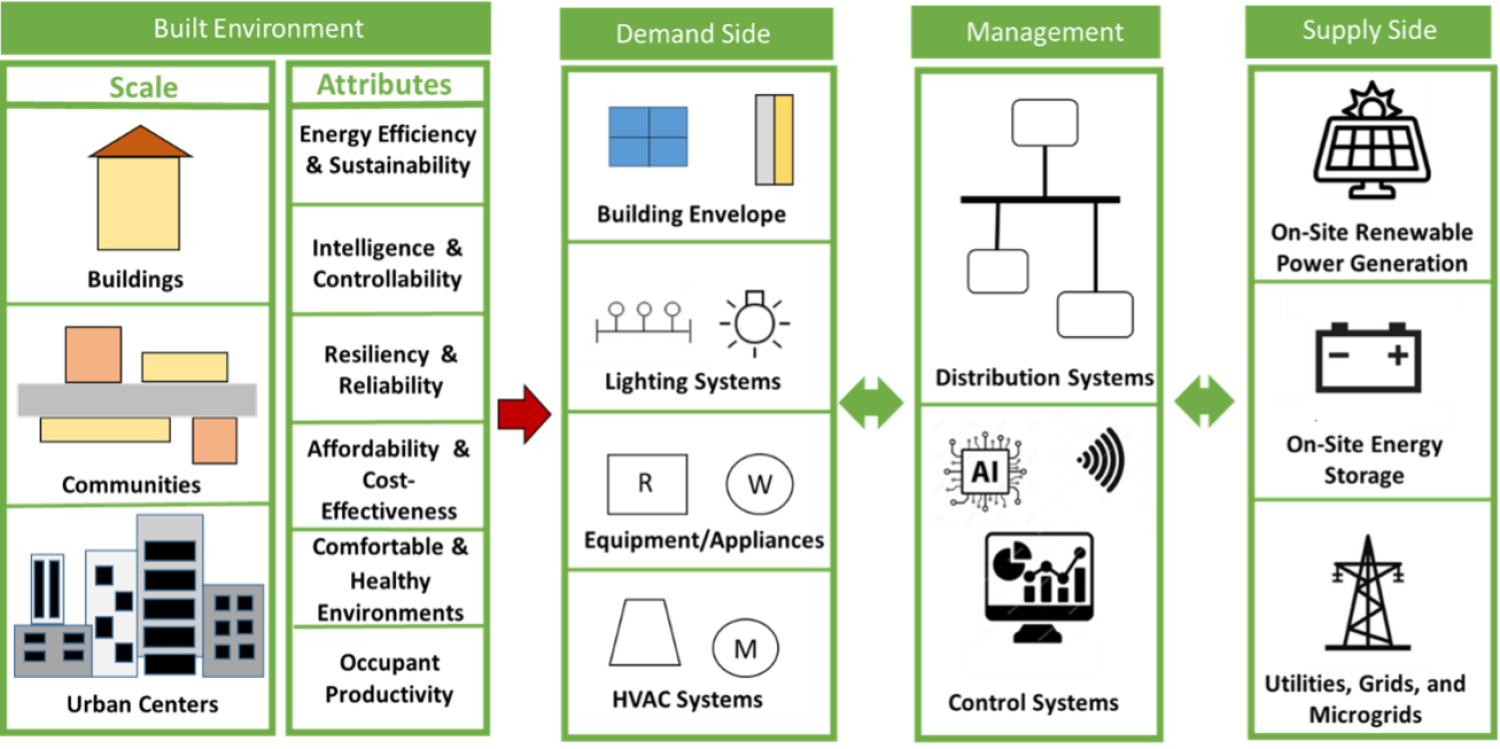Building Energy Smart Technologies (BEST) Center

The Building Energy Smart Technologies (BEST) Center is one of the main research platforms available for the Architectural Engineering students and faculty members. The BEST Center provides connections between universities and industries in the building industry with the common mission in developing and adopting sustainable and intelligent technologies. The BEST center is led by the University of Colorado Boulder but involves other US with the main mission to foster smart, sustainable, and efficient development and utilization of energy in the built environment through an integrated systems approach to design, retrofit, construct, and operate sustainable buildings and cities.
The main goal for the BEST Center is to enable the development of new and sustainable building energy technologies through a holistic understanding of the interaction between built and-natural systems. In particular, the center addresses design and operation solutions for the built environment associated with extreme weather events, which are becoming more frequent and intense due to a rapidly changing climate. Additionally, the center focuses on addressing the emerging challenges in the building sector due to pandemics and health crises such as those caused by COVID-19 and increase cybersecurity of the buildings systems and of occupants’ privacy. The center’s research scope spans various disciplines specific to building energy systems, including indoor-outdoor energy flows, advanced building envelope systems, demand-response informatics, application of advanced in-situ and remote sensing for monitoring the environment and occupants, and distributed energy efficient and renewable technologies.
To cover the rich and wide diversity of the building industry needs, six Thrust Areas are covered by the center’s research activities:
- smart buildings materials,
- Intelligent building mechanical and electrical energy systems,
- Distributed and renewable energy systems,
- City-scale building energy systems and informatics,
- Smart grid systems integrated with distributed energy and data systems, and
- Retrofit technologies for the existing building stocks


